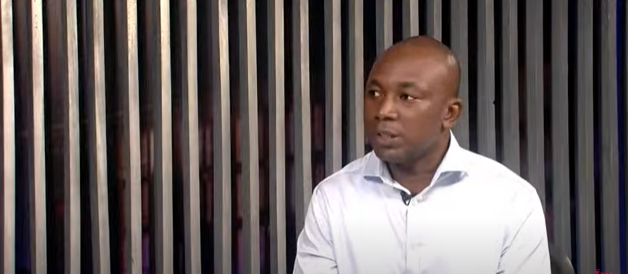A professor of Finance at the University of Ghana, Godfred Bokpin, voiced his disapproval of the suspended import restrictions bill emphasising the need for a clear policy direction and transparent procedures.
Speaking on JoyNews’ PM Express on Monday, he expressed concern over government's move to impose import restrictions without a clear groundwork that enables growth in Ghana’s industrial sector.
“I didn't support it [import restrictions bill]. One, it should not be the ministry to select who can and who cannot import, that's wrong. And then also the communication of the policy is very important. So there has to be a clear policy direction and you actually start from somewhere,” Prof Bokpin said.
“We didn't start from somewhere and we wanted to start with restricting import. What is the motive? That's not going to work and that's why we didn't support it. It was not just to ban those imports; the ministry will now determine who will qualify to import them,” he noted.
He acknowledged that although there needs to be some government intervention, it is not on who can be allowed to import especially when many of these goods though produced in Ghana are not always in sufficient quantities to fully supply the domestic market.
In December 2023, the government suspended the Import Restrictions Bill which sought to compel importers of some 22 restricted items, including poultry, rice, sugar, diapers and animal entrails to seek licences from a committee to be set up by the Trade Minister.
The minority in parliament on three occasions, blocked the laying of the L.I. because it was not only dangerous but violated international trade practices.
They also argued it could give too much power to the Trade Minister and could serve as grounds for corruption.
Other stakeholders such as the Ghana Union Traders Association, the Food and Beverage Association of Ghana, the Ghana Agricultural Workers Union, the Importers and Exporters Association of Ghana, the Chamber of Automobile Dealers Ghana, the Ghana Institute of Freight Forwarders and the Ghana National Chamber of Commerce and Industry opposed it.
The concerns raised included raising prices; creating possible supply monopolies; hindering the flow of goods from exporting countries; and exacerbating smuggling, leading to official tariff and tax revenue loss.
These stakeholders also expressed concerns about how the permitting process would be administered and its relationship to Ghana’s trade commitments under the WTO and the African Continental Free Trade Agreement.
However, Prof Bokpin believes that should government create an enabling environment for businesses, and factories, it will go a long way to resolve the issue the bill seeks to address.
This, he stated, is because the Ghanaian financial system does not align itself to production, agriculture or manufacturing noting it aligns itself more to imports.
“When we talk about enabling environment, it's not just interest rates coming down. We are talking about a level of interest rates at around 8% or below with a maturity of more than 15 years. That's the only thing that can support manufacturing. If you survey the type of lending in our market, it doesn't support production. It only supports imports.”
“Our financial system is designed in such a way that it favours import rather than production and agriculture. You check the data from the Bank of Ghana, the level of lending to the private sector and look at the disaggregation, what goes to manufacturing, what goes to agriculture and what goes to import and the rest. You see where the direction is.”
He called for greater transparency and a more structured approach, suggesting that the government's role should be to create an enabling environment rather than dictate specifics of import operations.
"Do things more transparently and then start from somewhere. Look, if you lay the foundation, entrepreneurs are wise enough, importers are wise enough to know where to import from.
"It's not for the state to determine who should, otherwise we are not in a market-based economy. Of course, some level of state intervention is important, but the baseline is, to create that enabling environment.”
Latest Stories
-
Amazon faces US strike threat ahead of Christmas
16 minutes -
Jaguar Land Rover electric car whistleblower sacked
23 minutes -
US makes third interest rate cut despite inflation risk
28 minutes -
Fish processors call for intervention against illegal trawling activities
41 minutes -
Ghana will take time to recover – Akorfa Edjeani
1 hour -
Boakye Agyarko urges reforms to revitalise NPP after election defeat
2 hours -
Finance Minister skips mini-budget presentation for third time
2 hours -
‘ORAL’ team to work gratis – Ablakwa
2 hours -
Affirmative Action Coalition condemns lack of gender quotas in Transition, anti-corruption teams
2 hours -
December 7 election was a battle for the ‘soul of Ghana’ against NPP – Fifi Kwetey
2 hours -
Social media buzzing ahead of Black Sherif’s ‘Zaama Disco’ on December 21
2 hours -
Afenyo-Markin still suffering from the massive defeat – Fifi Kwetey
2 hours -
Retain Afenyo-Markin as NPP leader, he has experience – Deputy Speaker
2 hours -
Kufuor didn’t leave behind a strong economy – Fifi Kwetey
2 hours -
It won’t be business as usual, remain humble – Fifi Kwetey to party members
3 hours

